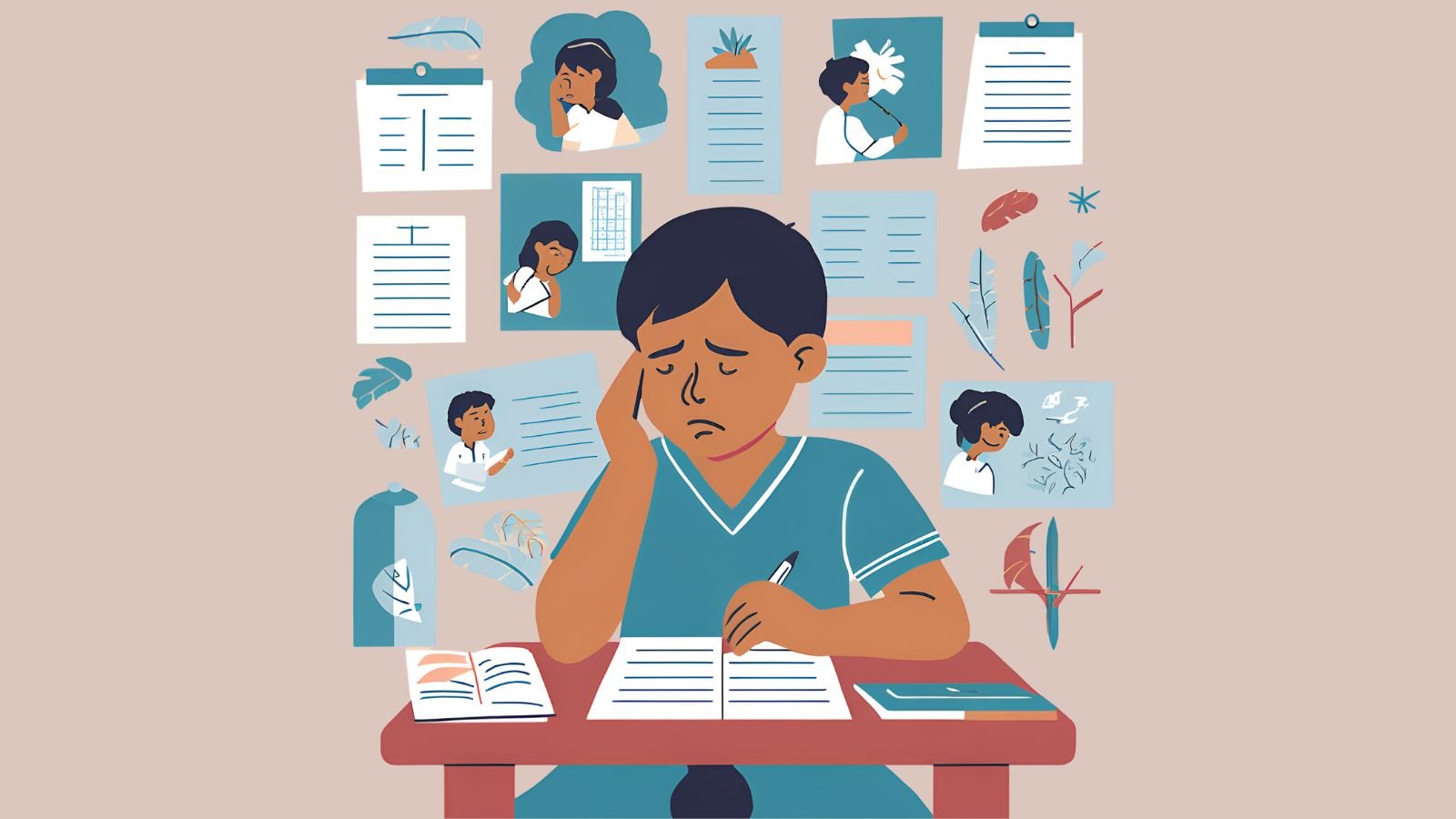The Joint Entrance Examination (JEE) is one of the toughest exams in India, determining entry into the country’s top engineering colleges. Every year, millions of students dedicate months—sometimes years—to intense preparation, long study hours, and relentless pressure. The journey can be overwhelming, often leading to stress, anxiety, burnout, and even self-doubt.
If you're feeling burdened by JEE exam stress, you’re not alone. Managing mental health and emotional well-being is just as important as solving complex physics problems or acing mock tests. This blog will guide you through practical ways to handle stress, stay motivated, and improve focus while preparing for the JEE exam.

Understanding JEE Exam Stress
JEE aspirants face multiple stress triggers, such as:
- High competition: Over 1 million students appear for JEE every year.
- Parental and societal pressure: Many students feel the weight of family expectations.
- Lengthy syllabus: The vast syllabus requires consistent effort over months.
- Fear of failure: The pressure to succeed can lead to performance anxiety.
How Stress Affects JEE Preparation
Unmanaged stress can lead to:
- Memory issues and lack of concentration
- Constant exhaustion and burnout
- Negative thinking and self-doubt
- Sleep disturbances and loss of motivation
Learning how to manage stress effectively can improve your focus, confidence, and performance in JEE.
Effective Stress Management Techniques for JEE Aspirants
1. Plan a Realistic Study Schedule
- A well-structured study plan helps you stay organized and stress-free.
- Set achievable daily and weekly targets instead of unrealistic goals.
- Include breaks and relaxation time to avoid burnout.
- Use the Pomodoro Technique (study for 50 minutes, take a 10-minute break).
2. Practice Mindfulness and Meditation
Mindfulness helps reduce exam anxiety and boosts focus.
- Try guided meditation or deep breathing exercises for 10–15 minutes daily.
- Use apps like Headspace or Calm for stress relief.
- Before exams, close your eyes and take deep breaths to stay calm.
3. Stay Physically Active
Exercise is a natural stress buster.
- Go for a morning walk or light jog to refresh your mind.
- Stretch between study sessions to release tension.
- Yoga and deep breathing improve mental clarity.
4. Eat Healthy, Sleep Well
Your body and brain need proper nutrition and rest.
- Avoid junk food, excessive caffeine, and energy drinks; they increase anxiety.
- Eat fruits, nuts, whole grains, and protein-rich meals for sustained energy.
- Aim for 7–8 hours of sleep to enhance memory retention.
5. Avoid Negative Thoughts and Peer Pressure
It’s easy to compare yourself with others, but self-doubt can be destructive.
- Believe in your unique journey instead of stressing over someone else's progress.
- Avoid negative discussions about ranks and marks.
- Surround yourself with positive, supportive people.
6. Use Relaxation Techniques Before Sleep
Many students suffer from pre-exam insomnia due to overthinking.
- Avoid screens and social media one hour before bedtime.
- Listen to soothing music or white noise to relax.
- Try progressive muscle relaxation (tensing and relaxing each muscle group).
7. Take Mock Tests, but Don’t Overdo It
Mock tests help in time management and confidence-building, but excessive testing can be stressful.
- Treat mock exams as learning experiences, not as final results.
- After a bad mock test, analyze mistakes instead of panicking.
- Remember, a low score in a mock test does not predict JEE failure.
8. Talk About Your Stress
Bottling up emotions worsens stress.
- Discuss your concerns with parents, teachers, or friends.
- Seek guidance from a counselor or mental health expert if needed.
- Join student support groups where aspirants share strategies and motivation.
The Role of Parents in Managing JEE Stress
Parents play a crucial role in a student’s mental well-being. If you're a parent of a JEE aspirant:
- Avoid pressuring your child with comparisons or high expectations.
- Encourage open communication and listen to their concerns.
- Provide emotional support instead of focusing only on results.
- Remind them that success is not just about cracking JEE, growth and learning matter more.

What to Do on the Day Before the JEE Exam?
- Revise only key concepts, don’t try to learn anything new.
- Eat light and stay hydrated to avoid discomfort.
- Pack your exam essentials (admit card, ID, stationery).
- Go to bed early and get proper rest.
- Visualize success and repeat affirmations like "I am prepared, I am confident."
What If You Don’t Clear JEE?
Not clearing JEE is not the end of the world. Many successful engineers, entrepreneurs, and innovators never wrote JEE or didn’t crack it on their first attempt.
- Consider alternative engineering colleges that accept JEE scores.
- Explore other career options like data science, management, or coding.
- Take a drop year only if you’re fully committed and mentally ready.
The most important thing is to focus on your growth, skills, and passion rather than just one exam.

Final Thoughts: Your Mental Health Matters More Than Marks
JEE is an important exam, but it’s just one step in your journey, not your entire life. Prioritize your mental and emotional well-being, stay confident, and believe in your abilities. No matter the outcome, you are more than just a rank.
If stress feels overwhelming, don’t hesitate to seek professional mental health support. Therapy, counseling, and mindfulness techniques can help you stay calm, focused, and mentally strong throughout your JEE preparation.
Stay motivated, stay healthy, and give your best!



